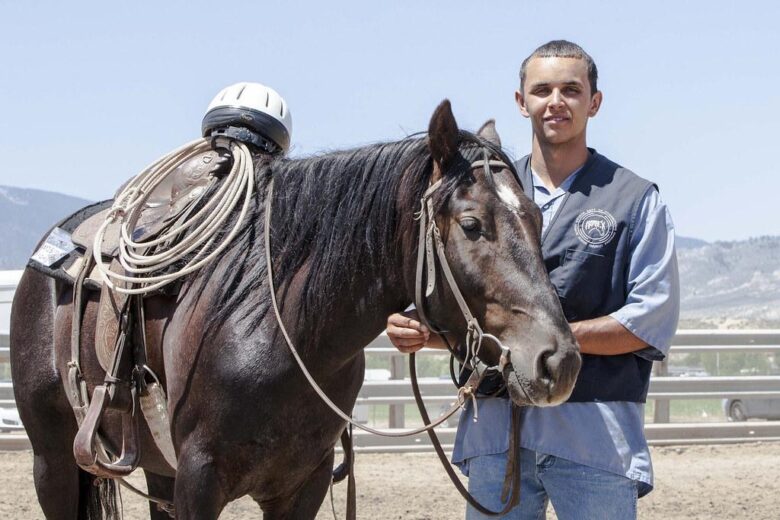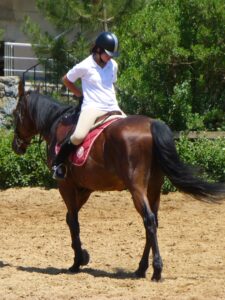In the world of horse care, effective equine management is the key to ensuring the health, happiness, and performance of our four-legged companions. By incorporating expert insights and best practices, horse owners and caretakers can navigate the complexities of equine management with confidence and success. Let’s explore the essential strategies and techniques that lead to optimal equine well-being and performance, as shared by industry experts.
– Key Factors for Successful Equine Management
In order to successfully manage equines, there are several key factors that every horse owner should consider. These factors play a crucial role in the overall well-being and performance of the horses under your care. Here are some expert insights that can help you effectively manage your equine companions:
- Proper Nutrition: Ensuring that your horses receive a balanced diet that meets their nutritional needs is essential for their health and performance. Consult with a veterinarian or equine nutritionist to create a customized feeding plan for each horse.
- Regular Exercise: Exercise is important for maintaining the physical fitness and mental well-being of horses. Implement a consistent exercise routine that includes a mix of groundwork, riding, and turnout to keep your equines happy and healthy.
- Quality Health Care: Regular veterinary check-ups, vaccinations, dental care, and hoof maintenance are vital for keeping horses in top condition. Make sure to stay up-to-date on all aspects of your horse’s health care needs to prevent any potential issues.
- Understanding the Importance of Proper Nutrition
In caring for horses, one of the most crucial aspects is ensuring they are provided with proper nutrition. A well-balanced diet is essential for maintaining a horse’s overall health and well-being. From supporting their energy levels to promoting strong muscles and healthy hooves, nutrition plays a significant role in every aspect of a horse’s life.
Key Points on Proper Nutrition for Horses:
- Quality Forage: Hay and pasture should make up the majority of a horse’s diet, providing essential fiber and nutrients.
- Grain and Supplements: Depending on a horse’s individual needs, supplementation with grain and nutrient-rich feeds may be necessary.
- Water Intake: Adequate hydration is vital for a horse’s digestion, temperature regulation, and overall health.
- Body Condition: Monitoring a horse’s body condition score helps ensure they are receiving the right amount of nutrients without becoming overweight or underweight.
| Common Nutritional Deficiencies | Effects on Horses |
|---|---|
| Vitamin E | Muscle weakness and poor immune function |
| Copper | Poor coat quality and anemia |
By understanding the importance of proper nutrition and implementing a well-rounded feeding program, horse owners can help their equine companions lead healthy, happy lives.
– Expert Tips for Maintaining Equine Health
Ensuring the health and well-being of your equine companion is essential for their overall quality of life. To help you effectively manage your horse’s health, we have gathered some expert tips and insights from seasoned equine professionals.
**Proper Nutrition**: One of the most crucial aspects of equine health is providing a balanced and nutritious diet. Consult with a veterinarian or equine nutritionist to develop a diet plan tailored to your horse’s specific needs. Incorporate a variety of high-quality hay, grains, and supplements to ensure your horse receives all the essential nutrients for optimal health.
**Regular Exercise**: Just like humans, horses require regular exercise to stay fit and healthy. Design a workout routine that includes a mix of groundwork, riding, and turnout to keep your horse physically and mentally stimulated. Regular exercise not only helps maintain a healthy weight but also strengthens muscles and improves overall fitness.
– Best Practices for Effective Pasture Management
When it comes to maintaining healthy pastures for your equine companions, there are several key best practices to keep in mind. One important aspect of pasture management is rotational grazing. This involves dividing the pasture into sections and rotating the horses between them to prevent overgrazing and allow the grass to recover.
Another essential consideration is monitoring and managing pasture health. Regularly inspecting the pasture for signs of overgrazing, weeds, and erosion can help you address issues before they become serious problems. Implementing a maintenance plan that includes fertilization, aeration, and weed control can also help keep your pastures in optimal condition.
Lastly, proper pasture management also includes providing your horses with access to clean water at all times. This is crucial for their health and well-being, as dehydration can lead to serious health issues. By following these best practices, you can ensure that your pastures provide a safe and nutritious environment for your equine partners.
Closing Remarks
In conclusion, managing horses effectively is a skill that requires a combination of knowledge, experience, and intuition. By incorporating the expert insights shared in this article, you can create a healthy and harmonious environment for your equine companions. Remember, each horse is unique and deserves individualized care and attention. So, whether you are a seasoned equestrian or new to the world of horse ownership, continue to educate yourself, seek guidance from knowledgeable professionals, and always put the well-being of your equine partners first. Together, we can ensure a bright and fulfilling future for our beloved horses.



